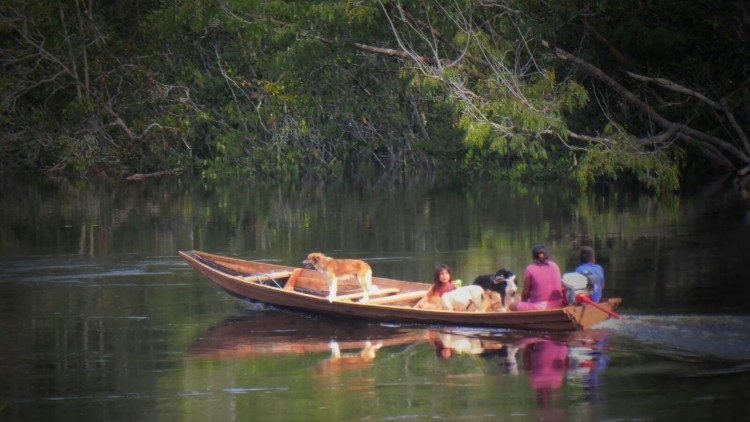On the sidelines of the Synod for the Amazon, Cardinal Peter Turkson speaks of the need to include those who belong to the Amazonian peripheries in integral human development.
By Linda Bordoni
As President of the Vatican Dicastery for the Promotion of Integral Human Development, the issues currently being discussed at the Synod of Bishops for the Amazon, are very close to Cardinal Peter Turkson.
Pope Francis called for this Special Synodal Assembly in 2017 indicating that the main objective is “to find new ways for the evangelization of that portion of the People of God, especially the indigenous, often forgotten and without a perspective of a good future, also for the cause of the crisis of the Amazonian forest, lung of fundamental importance for our planet”.
Speaking on the side-lines of the Synod at the start of its second week, Cardinal Turkson told Linda Bordoni that the Dicastery he heads was involved in planning for it from day one.Listen to Cardinal Peter Turkson
For me, Cardinal Turkson explained, the Synod is like a link in a chain and he said it’s been quite a long time that he has been following its development, starting with the first meetings between Pope Francis and the Popular Movements.
With the Popular Movements, he said, the focus was primarily on three basic rights: access to land, access to housing and access to work..
Here at the Synod, he continued, many of the same issues have come to light and directly regard the indigenous peoples.
“What are they looking for? Integrity of their land, jobs and ultimately human dignity,” he said.
Cardinal Turkson also spoke of the precious collaboration that has taken place between his Dicastery and the nine Churches of the Amazon region that make up the ecclesial network REPAM.
“For us, we see a progression stimulated by Pope Francis,” he said.
The Synod is part of an ongoing process
Cardinal Turkson said that it is “a keen sense of interest in the evolution and development of everything that has happened up to this moment” that he is following the Synodal process, and he stressed “It is not a point of arrival.”
He noted that discussions and interventions are bring to the fore many different issues, “some pastoral, some social, some developmental”.
From the point of view of his Dicastery, he said that although his team is deeply involved in the pastoral needs of the people, it is also very much aware of their other needs as well.
The Cardinal said that while it is important to help the indigenous peoples safeguard their culture and their heritage, the Amazon region must not be considered a museum: “we must help the people of the Amazon to open up”.
Leaving no one behind
“We must help them open up to modernity, to innovation, to development, “ he said, “The people of Amazonia, he said, must not be left behind”.
Cardinal Turkson expressed his belief that the Church’s pastoral concerns must include a clear vision and a programme that facilitates and promotes the growth of Amazonians in the realms of modernity and innovation .
He mentioned the possibility, for example, of offering all peoples the choice of being able to use solar energy and modern means of communications.
“I suspect that mobile phones are there… how do they charge them?” he said.
We need, he said, to recognize the very many factors that promote development and the common good, not betraying their culture, but making life easier and more fulfilling for them.
“This is also part of the vision that I think we need to set ourselves to realizing,” he concluded.



